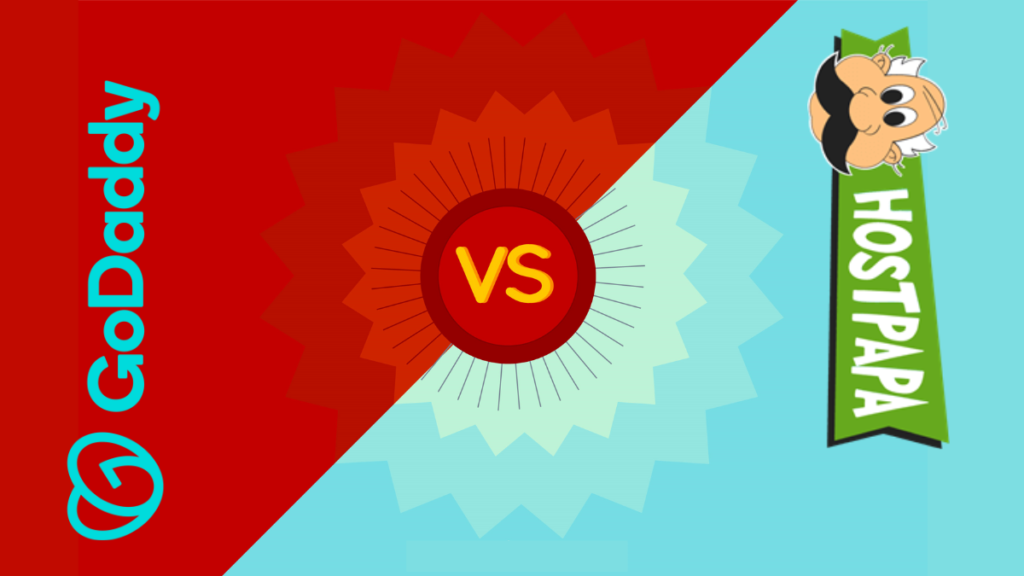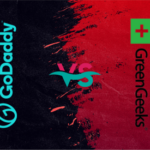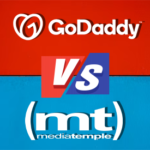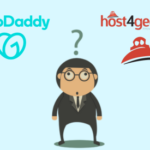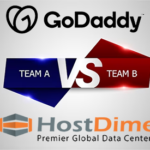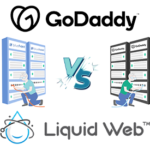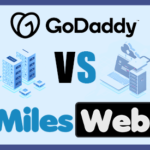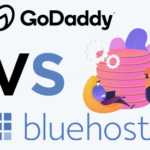Both GoDaddy and HostPapa are renowned web hosting providers in today’s market.
In terms of its history within the web hosting industry, GoDaddy boasts a considerably longer track record than HostPapa. GoDaddy’s origins trace back to 1997, well before the dot-com revolution, while HostPapa commenced its operations in 2006.
HostPapa has less experience in the industry and, consequently, a smaller customer base than GoDaddy.
However, it’s important to note that experience alone doesn’t determine the superiority of a web host. To identify the true winner in this blog, GoDaddy vs HostPapa, both have been compared through various criteria to provide a comprehensive overview of their strengths and weaknesses.
Pricing and Plans
When you examine the plans provided by both web hosts, you will see that they were developed in response to the traffic demands of various websites.
The beginning or basic plan is appropriate for tiny websites, whereas the other plans are for websites with medium to high traffic.
Here, we’ll side-by-side compare the plans of the two hosts.
Hostpapa
HostPapa offers three shared hosting plans, each packed with an array of enticing complimentary features and premium offerings at no extra cost. These plans include free SSL certificates, SSD storage for optimal performance, the CloudLinux operating system for enhanced stability, Git for efficient file change tracking, and Hotlink protection to safeguard your content.
HostPapa also integrates with Cloudflare to enhance your website’s speed and security. Depending on your chosen plan, you’ll enjoy between 100GB and unlimited disk space, unlimited storage, and hosting for 2 to unlimited websites.
GoDaddy
In contrast, GoDaddy provides four shared hosting plans, offering between 100GB and unlimited HDD storage, the option to host 1 to an unlimited number of websites, access to 10 to unlimited MySQL databases, and unmetered bandwidth for smooth data flow.
GoDaddy also includes a complimentary Office 365 Email subscription for the first year with its plans. However, unlike HostPapa, GoDaddy does not include a free Content Delivery Network (CDN) with its hosting packages, and you’ll only receive a free SSL certificate with its higher-tier plans.
Performance
GoDaddy
GoDaddy has achieved remarkable website speed performance in recent tests, attributed to its extensive global server infrastructure.
The geographical distribution of these data centers and server locations is pivotal in determining website loading speeds. The proximity of a server to a user’s physical location directly influences the speed of data delivery.
When measuring the time it takes for a website to receive the first byte of data, a crucial indicator of potential loading speeds, GoDaddy reports impressive figures, ranging from 0.1 to 0.7 seconds, depending on the test’s geographical location.
For the overall webpage loading time, encompassing the duration for a web page to load fully, GoDaddy’s reported times range from 2.5 to 5 seconds.
HostPapa
The initial first-byte test results for HostPapa indicate potential speed inconsistencies, with reported times spanning from 0.45 seconds to 3 seconds. Nonetheless, when considering the overall page loading speeds, HostPapa’s performance appears commendable.
Overall scores have ranged from 1.7 seconds to 6 seconds, but it’s essential to note that the perceived impressiveness of these loading times is contingent upon the testing location. A 6-second load time may not be considered exceptional in certain contexts.
As demonstrated, the speed of a web hosting provider can vary significantly. If speed remains a paramount concern, we recommend considering GoDaddy as your hosting provider, given its extensive network of data centers and server locations, which can enhance the experience for your website visitors.
Security
HostPapa default hosting plans come equipped with extensive security features, encompassing server firewall, monitoring, intrusion detection, DDoS/Brute-Force protection, secured entrance and exit, network monitoring, and ModSecurity. In contrast, GoDaddy’s standard security offerings comprise DDoS protection, firewall configurations, server hardening, and security audits.
HostPapa vs GoDaddy, Both hosting providers operate their Linux-based shared hosting servers on CloudLinux OS, a secure environment that isolates your account from potential threats originating on the same server, ensuring enhanced protection.
Both HostPapa and GoDaddy offer complimentary automatic free daily backups, albeit exclusively with their higher-tier plans.
As mentioned, HostPapa stands out by including a free Content Delivery Network (CDN) with all its plans, whereas GoDaddy offers a CDN exclusively with its WordPress hosting packages. It’s worth noting that a CDN also contributes an additional layer of DDoS protection.
Given the broader spectrum of security features HostPapa offers, it emerges as the preferred choice for safeguarding your website’s security.
Conclusion
Ultimately, your selection of a web hosting provider hinges on your experience level and the nature of your website. However, you can choose either option for those venturing into website ownership for the first time. GoDaddy frequently stands out for its cost-effective shared hosting plans, while HostPapa delivers exceptional customer service and WordPress hosting solutions. In either case, you’ll be well supported by these providers.
In the battle of HostPapa vs Godaddy, neither GoDaddy nor HostPapa constitutes a poor choice. GoDaddy has a strong reputation as a reliable web host with many satisfied customers, and the same holds for HostPapa. To make an informed decision, take the time to compare their pricing and ratings before committing to one over the other.


